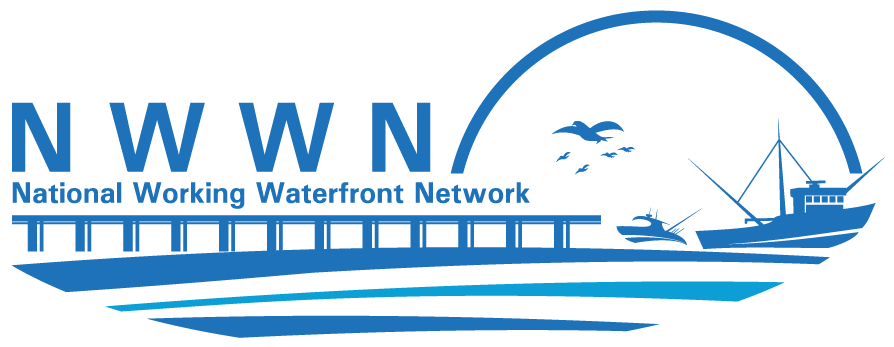
21 Jul Conducting a Gap Analysis to Determine Needs for Transitioning to a Low-Carbon U.S. Fishing Fleet
Written By Erika De La Rosa, Master’s Student, University of Washington
I was hired by the National Working Waterfront Network to partner with Shinning Sea Fishery Consulting as the Intern/Research Assistant on the Fisheries Friendly Climate Action Campaign research project “Accelerating a Transition to a Low-Carbon Fishing Fleet.”
Shining Sea Fisheries Consulting is a mission-driven social science research and communication firm specializing in fisheries, wild seafood, and environmental information and decision-making. The Fishery Friendly Climate Action campaign is a grassroots initiative that provides fishermen, fisheries associations, and seafood businesses with tools, networking, access, and knowledge to advocate for robust climate solutions that work for U.S. fisheries and not at their expense. Sarah Schumann, Shining Sea’s principal and the Fisheries Friendly Climate Action coordinator, is an inspiring individual that has laser-selected fisheries-related research topics that are practical with exciting tangible outcomes. When I first met Sarah in person, I asked why she chose to spearhead a project called “Accelerating America’s Commercial Fishing Fleet to a Low Carbon Future,” and why not focus on fishermen and offshore wind energy, or the adaptive capacity of commercial fishermen in response to climate change?
Sarah’s response was motivating and ultimately was my guiding light through the internship as her research assistant on the project; many areas where fisheries advocacy and climate policy overlap are quite adversarial. However, as vessel owners work on their boats, repower engines, upgrade, or build new ones, there is an opportunity to install parts that are more efficient and share practices that lower emissions. Thus, the goal of this research was to find knowledge gaps related to energy efficiency in the United States commercial fishing fleet and work towards providing accessible options.
The work that I have done over the past quarter through this internship has felt like a step out in a new direction and at the same time, a step through the threshold home. I’ve been commercial fishing with my family in Bristol Bay, Alaska (gillnet), for the past 14 years and with my partner in Southeast Alaska (purse seine) for the last 5 years. This research is a bi-coastal endeavor that includes collecting data through interviews with commercial fishing vessel owners in New England, West Coast, and Alaska. Specifically, my work involved conducting interviews with fishermen in Alaska and Washington. I’ve connected with many vessel owners via email blasts, Facebook group posts, Instagram stories, hanging flyers, handing out business cards, and cold call my fishing friends.
Through interviews we hoped to gain insight on a vessel owner’s energy usage; steps they may be taking or may wish to take to reduce fuel consumption; thoughts on the viability of alternative, low- or zero-carbon fuels and propulsion systems in a fishing context; and fishermen’s recommendations for new public programs that can support pilot testing and adoption of low-carbon innovations in the fishing fleet.
Across fleets, regardless of the fishery, I heard a wide range of creative ideas and solutions. From the most imaginative such as completely removing gillnets from Bristol Bay and returning to community fish wheels; to resourceful suggestions, like localizing (and domesticating) production centers for part production; and to the far-fetched; installing mini hydrogen plants in the engine room; to the simple, just improve communication in rural areas.
At this point, I’ve completed my graduate program along with the NWWN internship and am in Alaska on my partner’s seiner. However, I will continue collecting data over the next 5 weeks, by interviewing vessel owners in Southeast Alaska from other fleets (trolling, trawling, crabbing, etc.).
Once interviews are completed, transcribed, and coded, the fun begins! All the data will be compiled into a report to share with policymakers. This report will detail what we’ve learned via interviewing fishermen across the country about what works and what doesn’t work. We’ll explain how programs, engine upgrade exchanges for example, can be flexible to accommodate the differences across fisheries and accessible so that those who need options can apply.
If the federal government is serious about providing funds to different industries for action on climate change, we are serious about ensuring its maximum efficiency, accessibility, and usability for American Commercial Fishermen.

